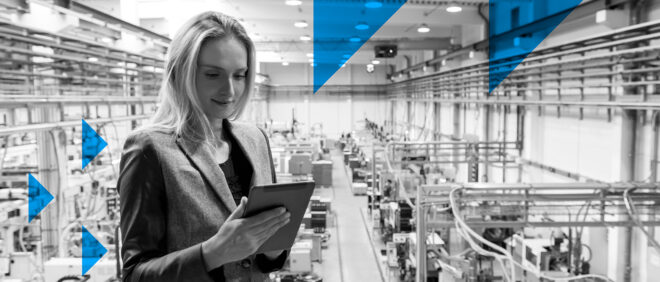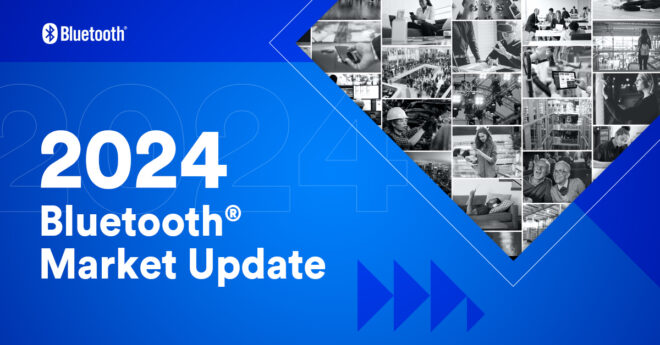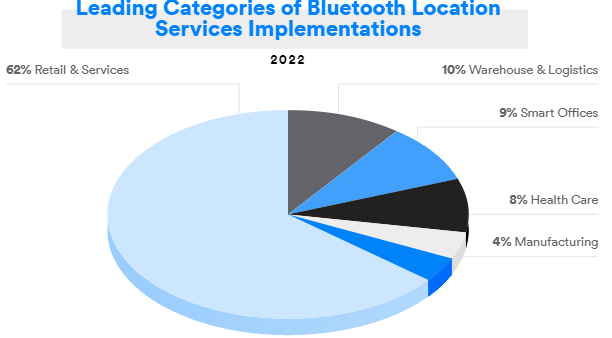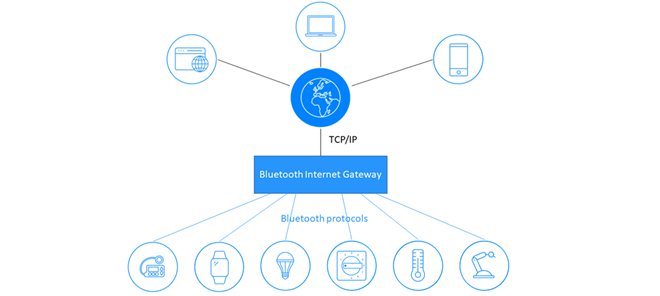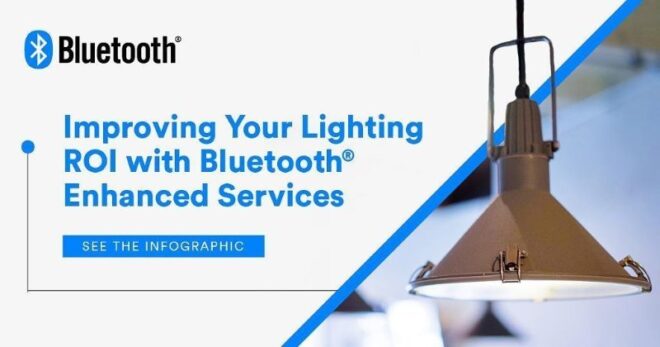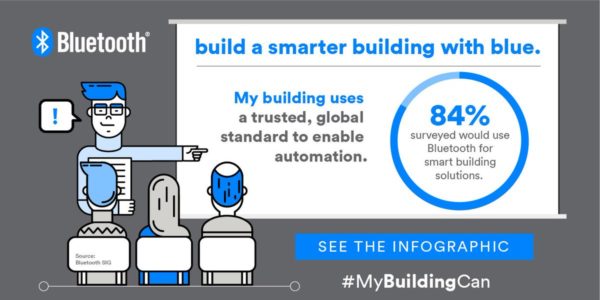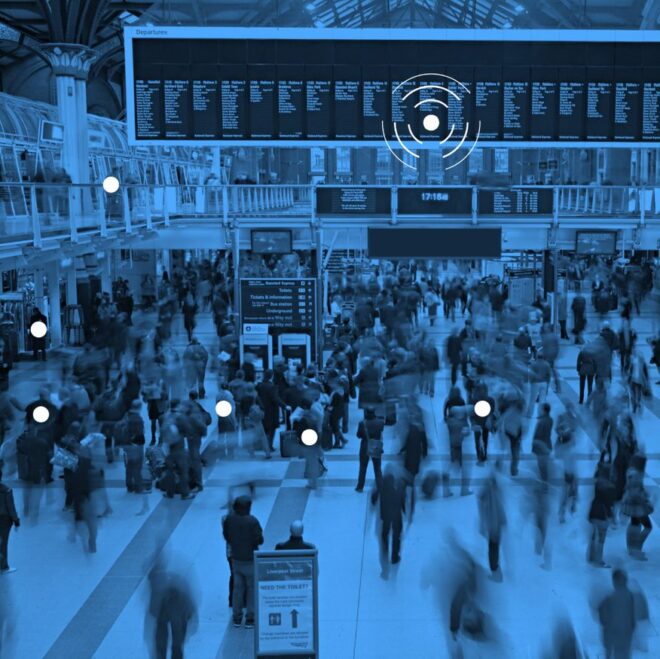In the wake of the pandemic, the need for businesses and government facilities to help ensure the health and safety of employees and visitors has led to a rapid increase in the demand for location-based safe return solutions, such as contact tracing. As a result, we’ve seen a surge in the deployment of asset tracking and other IoT technologies, especially in hospitals and large facilities. Experts expect to soon see retail and transport sectors follow suit.
Asset Tracking and COVID-19
Fabio Belloni, Quuppa co-founder and chief customer officer says that industries have been experimenting with real-time locating systems (RTLS) to geolocate their assets (tools, materials, products, etc.) for some time. The COVID-19 pandemic has catapulted these services into a new era. Thanks to a wide range of inherent features, Bluetooth® technology was selected as the solution of choice to meet evolving location services demands. “The new development in Bluetooth location methodologies allows companies to achieve high accuracy and reliability at a price point that other technologies cannot offer,” said Belloni.
Environments like offices, hospitals, factories, construction sites, and retail spaces can equip their staff with Bluetooth tracking tags capable of detecting distance to one another and notifying the user should they breach social distancing recommendations. Furthermore, should any personnel test positive for the virus, other staff members can be notified if they came in contact with an infected employee. “Even if someone tests positive, businesses can still operate; the whole workforce does not necessarily need to isolate,” said Belloni.
According to Paul Dupont, VP of sales at Pointr, the pandemic underscored the need for hospitals to innovate. “Maintaining social distancing while making the best possible use of over-burdened staff has accelerated the need for location services,” said Dupont. “Smart hospitals use Bluetooth® technology to enable location-based services and analytics. These include digital wayfinding and asset tracking, both of which can be enormously beneficial for safety and efficiency.”
“The new development in Bluetooth® location methodologies allows companies to achieve high accuracy and reliability at a price point that other technologies cannot offer.”
– Fabio Belloni, Quuppa
![]()
FEATURED REPORT
How Bluetooth® Technology is Enabling Safe Return Strategies in a COVID-19 Era
Asset Tracking in Healthcare
Healthcare is one sector that illustrates the potential for Bluetooth® Asset Tracking. Reductions in the time to locate an important device or critical medication can be the difference between life or death. Bluetooth Location Services solutions can support a range of tailored applications that not only increase the efficiency of care but also improve the tracking and management of assets, processes, and compliance with regulatory standards.
An average hospital in the United States can save up to $1.2 million.
With Bluetooth Asset Tracking, hospitals can track equipment in real-time, allocating the right resources to the right teams at the right time while ensuring valuable equipment is not lost or stolen. Asset tracking makes it possible to get the real-time position of equipment, such as medical devices, trolleys, and wheelchairs, and ensure they are available when visitors or patients need them. Dupont says that, by implementing a Bluetooth® asset tracking solution, an average hospital in the United States can save up to $1.2 million in equipment each year.
“One study suggests that nursing staff waste an hour per shift trying to find equipment,” said Dupont. “This is time consuming, expensive, and, of course, can be dangerous in an emergency.” In a smart hospital, equipment such as ultrasound machines, concentrators, mobile hoists, and other assets, can be fitted with a Bluetooth tag so staff can see where they are on a live dashboard. When a nurse takes a new shift, they can immediately see where equipment is and know if it has been disinfected and ready for use.
Asset Tracking in Manufacturing
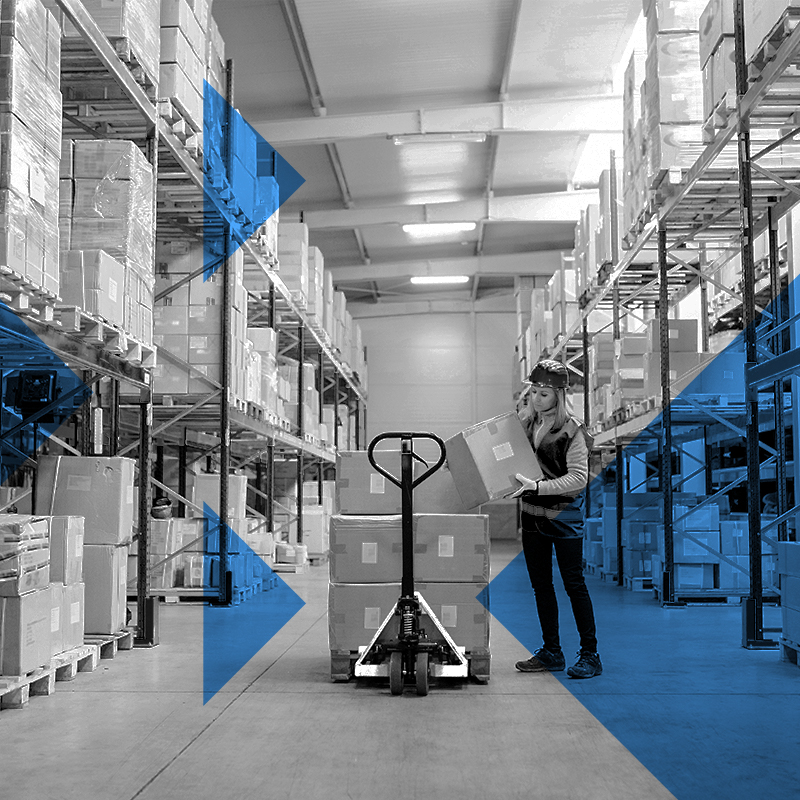
The proliferation of connected devices is powering efficiencies and driving ROI across many verticals and has made an especially noticeable impact in engineering and manufacturing operations. With the addition of location-based applications, facilities can get real-time, accurate, and in-depth insight into the production process, including the position of their workforce and industrial assets. This data can be processed, analyzed, transformed into actionable KPIs, and used to drive initiatives that optimize efficiency.
According to Belloni, Bluetooth® Location Services solutions can help businesses track assets and workflows while increasing work safety for all employees. “Imagine needing to find a specific shipping container amongst thousands that all look alike or helping a worker find the right tool for completing the job,” said Belloni. “Combining asset tracking with IoT in this way means businesses can get accurate insights to inform key decisions on performance, saving a significant amount of time and money.”
The benefits expand beyond just positioning; location-based IoT applications can significantly streamline processes by reducing the time spent on mundane tasks, such as inventory checks and paperwork. Management can check where time is being wasted and generate insights on how system layouts can be improved, increasing overall output productivity.
![]()
Asset Tracking in the Real World
The merging of RTLS and the IoT has created a new ecosystem that offers a wide range of operational advantages, from automated system integration to tracking critical assets and enhancing worker safety. Already, facilities around the globe, from manufacturing to healthcare, are leveraging Bluetooth® enabled innovations to support a host of accurate, cost-effective, location-based services.
ILR Industries
ILR Industries, an Ontario-based provider of manufacturing alternatives for plastics products, was faced with the challenge of keeping employees safe while maintaining operations during the pandemic. Using Quuppa’s Bluetooth® enabled indoor positioning technology, they can gather data about asset and material locations, workflows, and productivity. The Bluetooth system ensures adherence to social distancing and enables contact tracing capabilities if an outbreak occurs. The solution not only enables workers within the factory to stay safe, but it also increases productivity and enhances efficiency.
Bluetooth® technology enables high-accuracy, reliable asset tracking that can improve efficiencies and increase ROI across multiple markets.
Dyer Engineering
Dyer Engineering, a UK-based manufacturer of metal components and structures, manages more than 10,000 operations in ten buildings across two sites three miles apart. Using a Bluetooth® enabled Quuppa asset tracking system, Dyer Engineering employees can save a significant amount of time and effort in searching for materials and equipment. Dyer Engineering estimates that this workflow improvement cut costs by up to £10,000 per month.
Geoangel
Geoangel, a US-based provider of elder-care innovations, leverages a Bluetooth® enabled Quuppa indoor locating system to improve the safety and quality of life for residents in care centers, such as those suffering from Alzheimer’s disease or dementia. The system allows Geoangel to offer a wander management solution that includes wireless nurse calling, staff notifications to support incident prevention, movement recording, and remote sensor monitoring.
Bluetooth® technology is ubiquitous and widely adopted by the market. Thanks to the recent advancements, such as direction finding, Bluetooth technology now enables high-accuracy, reliable asset tracking that can improve efficiencies and increase ROI across multiple markets, whether that’s critical healthcare environments or harsh industrial spaces.
![]()
FEATURED INFOGRAPHIC
Bluetooth® Location Services Infographic
See 8 use cases for enhancing building efficiencies and creating a better visitor experience, discover new data that supports the latest trends and forecasts, and find out what’s driving the rapid adoption of location services solutions.








